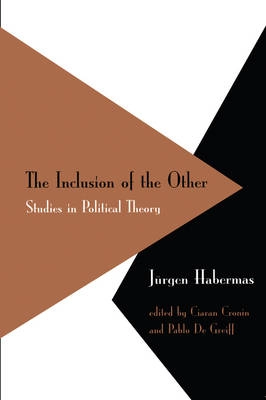

Inclusion of the other - studies in political theory
- Utgiven: 2002
- ISBN: 9780745630465
- Sidor: 352 st
- Förlag: Blackwell Publishers
- Format: Häftad
- Språk: Engelska
Om boken
Åtkomstkoder och digitalt tilläggsmaterial garanteras inte med begagnade böcker
Mer om Inclusion of the other - studies in political theory (2002)
I september 2002 släpptes boken Inclusion of the other - studies in political theory skriven av Jurgen Habermas. Den är skriven på engelska och består av 352 sidor djupgående information om filosofi och idéhistoria. Förlaget bakom boken är Blackwell Publishers.
Köp boken Inclusion of the other - studies in political theory på Studentapan och spara pengar.
Tillhör kategorierna
Referera till Inclusion of the other - studies in political theory
Harvard
Oxford
APA
Vancouver



















